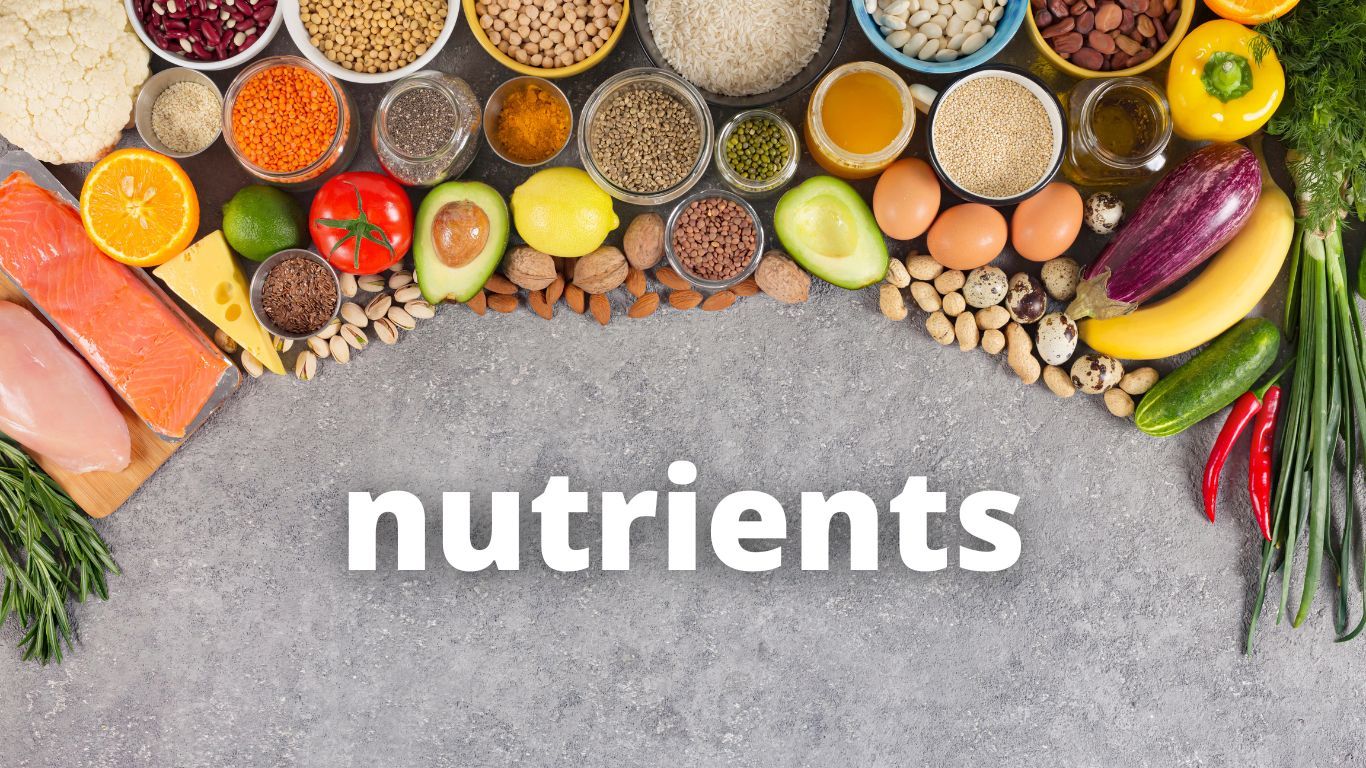
Are you trying to figure out a first trimester meal plan to keep yourself healthy during pregnancy? It’s wise to carefully choose the right diet when you’re pregnant.
The first trimester of your pregnancy is an incredible time. You’ve got a new member of the family on the way, and you’re likely to be excited, elated, and maybe a little nervous. While you might be keen to ensure you’re eating the right foods to help nourish the new life growing inside of you, the changes happening in your body can make this tough.
Your body experiences a significantly rapid surge in hormones during the first trimester of pregnancy. In particular, progesterone can prompt nausea, digestive discomfort, constipation, and even acid reflux. With morning sickness and back pain to worry about, you may find you can no longer face the idea of making some of the healthy foods you used to love.
So, how do you ensure you’re getting the nutrients you and your child really need? And how can you effectively organize an appropriate first trimester meal plan?
What Happens to Your Body in the First Trimester?
If you’ve just discovered that you’re pregnant or you’re planning a pregnancy, it’s worth taking steps to prepare your body for the changes it will undergo, before you ever get pregnant. Taking extra supplements, such as folic acid and prenatal vitamins can help overcome any deficiencies you may have.
By the time you see the blue line on your positive pregnancy test, you may already be around 4 weeks pregnant. Your body will be building up a huge amount of extra hormones, including estrogen and progesterone, which contribute to your morning sickness. You may also have excessive HCG (Human Chorionic Gonadotropin) in your system, which contributes to frequent bathroom visits.
Progesterone also slows muscle movement in your body, which can mean you’re more prone to digestive health issues such as constipation and bloating. In general, it’s common to feel as though you don’t want to eat anything during the first trimester, though your appetite is likely to come back in a few months.
Since your body is going through a lot of changes during the early stages of pregnancy, the most important thing you can do is make sure you’re getting plenty of nutrition and energy. You’ll need to eat approximately 2000 calories per day, though your practitioner may recommend more calories, depending on how active you are on a daily basis.

Important Nutrients for Your First Trimester Meal Plan
In general, most doctors and physicians will recommend eating what you can, when you can, during the first trimester. You may not be able to stick to your regular routine, and you may find yourself craving foods outside of your typical diet. However, it’s worth thinking carefully about the nutritional needs of both you and your baby, to determine whether supplementation is necessary.
Some of the most important nutrients you’ll need in your first trimester meal plan include:
· Folic acid: One of the most important micronutrients for pregnant mothers, Folic acid plays an essential role in neural development. Generally, experts recommend getting around 600mcg of this nutrient each day. You can find folic acid in green leafy vegetables, oranges, strawberries, nuts, kidney beans, and beets. If you’re struggling to eat all of those foods, consider taking a prenatal supplement.
· Protein: Protein is an essential part of any healthy diet. During pregnancy, you’ll need plenty of lean protein to support the development of your child’s muscles and bones. Protein is easy to come by if you’re a meat eater, as it’s available in various animal products, such as chicken and eggs. However, vegans and vegetarians can also find protein in Tofu, beans, legumes, and various other substances.
· Calcium: Another major nutrient which becomes more important during pregnancy, calcium supports healthy teeth and bones. Your child will need to absorb calcium from your existing stores, so it’s important to stock up to avoid issues such as brittle bones later. You can find calcium in milk and dairy products, as well as dark leafy greens. If you’re a vegan, you may need to consider taking a supplement, or using fortified foods.
· Iron: Often overlooked as an essential nutrient, iron is extremely important as your circulatory system evolves to suit the needs of your baby. Getting the right amount of iron from your diet alone can be difficult, but you can find this substance in eggs, chicken, tofu, spinach, and beef. If you’re worried about pregnancy anemia, speak to your doctor.
· Vitamin C: Crucial for the immune system and the healthy development and growth of all body tissues, vitamin C is a must-have for your first trimester. There’s plenty of this substance in oranges, strawberries, broccoli, and other fresh produce. Vitamin C also helps to promote the absorption of other nutrients such as iron.
· Potassium: Working alongside sodium to give your body the correct fluid balance, potassium is also important for good blood pressure. Aim to get plenty of extra potassium into your diet through foods such as avocados, bananas, and apricots.
· DHA: Omega-3 fatty acids including DHA are crucial the development of the heart, and the immune system. To protect yourself and your child during pregnancy, you can stock up on oily fish such as anchovies and sardines. If you don’t enjoy seafood, or can’t eat it as a result of your diet, then look to fish oil tablets.
· Vitamin B12: Getting enough Vitamin B12 can be difficult at any stage of life. This substance is essential to the creation of DNA, and it nourishes both the brain and nervous system. Vitamin B12 is most commonly found in animal-based products such as poultry, red meat, and seafood. However, there are some fortified cereals and breads for vegans. If you’re a vegan, you may need to consider supplementation or B12 injections.

The Best Foods for Your First Trimester Meal Plan
Ideally, your first trimester meal plan will contain all of the nutrients mentioned above in healthy doses. However, meal planning during this transformational stage can be tough. In general, you’ll need to focus as much as possible on eating a rich, nutritional, and varied diet, brimming with carbohydrates, protein, fats, and minerals. You don’t necessarily need to worry about eating too many additional calories until the second trimester, however.
To create the perfect meal plan for you and your baby, it’s worth speaking to a medical professional about your specific nutritional needs. As mentioned above, vegans and vegetarians may need additional supplementation to ensure they get enough of the right substances into their bodies.
Here are some great options for expecting mothers to consider incorporating into their first trimester meal plan:
· Lean meats: If you’re a meat eater, lean meats offer an excellent source of protein, iron, and other essential amino acids. Sirloin steak (in small doses) may be a good option, along with plenty of turkey and chicken. Pork tenderloin can be a good choice too.
· Dairy: The nutrients in milk and dairy products help to protect against fatigue, maintain healthy blood pressure, and support good brain development. Yogurt contains high doses of both calcium and protein, so it’s great for stocking up on nutrients. It’s also possible to find dairy products fortified with vitamin B12 and other minerals.
· Dark leafy greens: Kale, broccoli, and similar leafy green vegetables are a wonderful source of folate, fiber, and carotenoids. These veggies also come packed with C and K, as well as essential minerals iron and calcium. Try mixing some kale or spinach into a smoothie each morning if you’re struggling to eat much.
· Fresh fruit: Great for stocking up on natural energy and vitamins, fresh fruit is brimming with a huge range of different nutrients. Bananas are great for potassium, and can often be bland enough to eat when you’re feeling nauseous. Oranges are fantastic for vitamin C, and berries are great sources of antioxidants.
· Beans and lentils: Lentils and beans are great sources of protein, fiber, folate, and iron. Adding some of these foods to your regular diet will help you boost your nutritional balance, and you don’t need to eat a lot to get the benefits.
How to Handle the Nausea in the First Trimester
The biggest challenge for most mothers planning a first trimester meal plan is figuring out how to stomach healthy foods when dealing with morning sickness and acid reflux. One option is to eat foods which are easier for the body to digest, such as rice and yogurt. You can also consider blander meals if you’re not feeling particularly hungry, as they’re less likely to upset your stomach.
It’s normal to eat more plain foods if you’re worried about vomiting, because plain foods are less likely to cause a negative reaction.
Another good idea is to incorporate some healthy components into the foods you’re craving. For instance, if you’re eager to eat some ice cream, try blending a frozen banana with a little bit of milk or cream for a healthier alternative. Other quick tips for managing nausea include:
· Eat little and often: You don’t have to follow your normal food routine when you’re pregnant. If you don’t have a great appetite, try eating small amounts frequently instead. Healthy snacks such as kale crisps are great for topping up your nutrition.
· Avoid certain foods: Stay away from spicy foods, high-fat foods, and other products which might turn your stomach. Spicy foods in particular can make your acid reflux issues worse than normal, which can contribute to greater nausea.
· Go for softer meals: If you can’t stomach full meals, consider creating smoothies or home-made ice creams instead. Softer meals can be easier on your stomach, and they may not be as uncomfortable to regurgitate if you can’t keep them down.
· Take a supplement: Taking multivitamins and supplements during pregnancy can help you stock up on more of the nutrients you need. Some of these products can also help with nausea, such as vitamin B6. Ask your doctor which option is best for you.
· Stay hydrated: When all else fails, make sure you’re stocking up on plenty of water. Keep a bottle with you at all times so you can keep sipping. This can help to reduce nausea, and also prevent you from becoming dehydrated when you’re sick.
Create Your First Trimester Meal Plan
Ultimately, while eating healthy on a first trimester meal plan is important, you shouldn’t worry too much about it, as this can often lead to unnecessary extra stress and anxiety. Instead, do your best to eat as much nutritional food as you can, and look into supplementation to top up the nutrients you’re missing out on.
If you’re worried about your diet at all, it’s best to check in with your doctor for some tips on how you can stay as healthy as possible in this crucial phase of pregnancy.
If your CircleDNA report indicates any higher needs of certain nutrients on your genetic nutrition report, you may want to discuss that with your doctor as well.







This Post Has One Comment
Comments are closed.